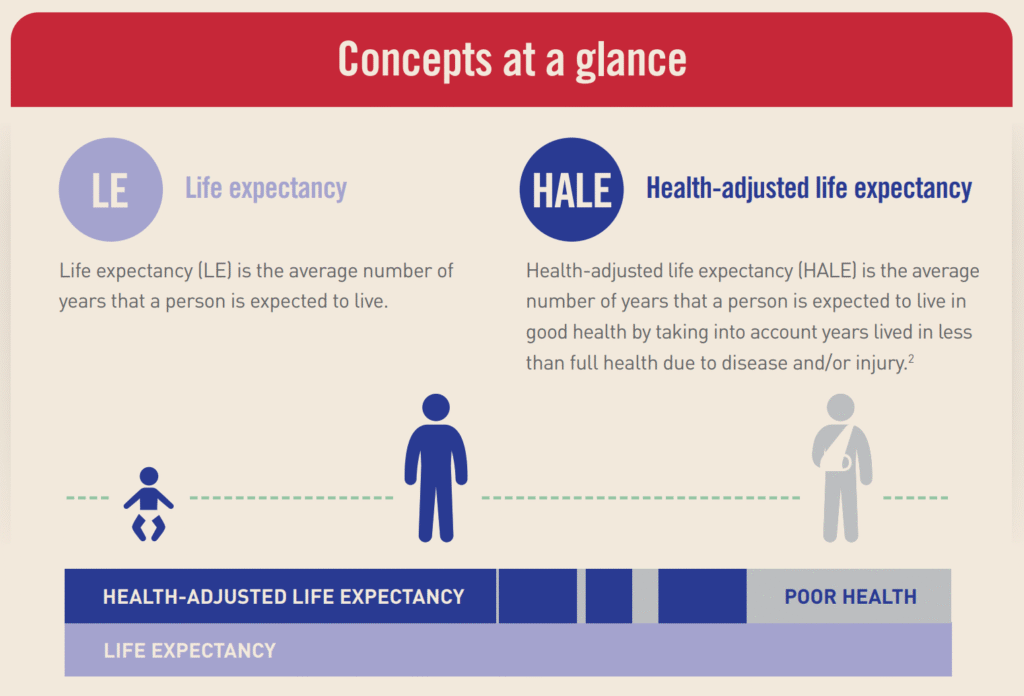How is HALE Important to a Very Late Diagnosed Autistic (Elder-autie)
Many individuals diagnosed with Autism Spectrum Disorder reflect on how their lives might have been different if they had received their diagnosis earlier. For elder-auties, this reflection can be particularly challenging because there will have been decades of masking, confusion and frustration. Trying to separate who you really are vs who you present to society can be incredibly difficult and prolong the healing process. Reinventing yourself can be an important step for all Autistics post diagnosis, but for elder-auties there is an urgency associated with the amount of “quality time” you may have left. Understanding longevity in a blunt, autistic way can help with setting strategic goals that are time based.
I will share general longevity information below. It should be noted that while very few studies have been done on longevity differences between adults with Autism and without, the research that has been done suggests that individuals with Autism have significantly more mental health and medical issues than those without Autism.1 2
Nearly all medical conditions [are] significantly more common in adults with autism, including immune conditions, gastrointestinal and sleep disorders, seizure, obesity, dyslipidemia, hypertension, and diabetes.
WHO has the statistics? … WHO does!
The World Health Organization (WHO) collects longevity data from all countries and publishes the statistics. I will leave links below to these resources and will also provide you with a summary.
WHO publishes statistics for Life Expectancy and Health-Adjusted Life Expectancy (HALE). For both they also provide an expectancy “from birth” statistic and an “at 60 years” statistic. The second statistic is the one we want to look at since most of you will be near or past 60 years of age.
| Country | Life Expectancy at age 60 | HALE at age 60 | Unhealthy Years |
| Australia | 84.6 | 78.3 | 6.3 |
| Canada | 83.9 | 78.8 | 5.9 |
| UK and Northern Ireland | 82.9 | 77.4 | 5.5 |
| USA | 82.5 | 76.3 | 6.2 |
So, as an example, on average, an Australian that is close to 60 years old is expected to live to 84.6 years, however, by age 78.3 they will develop health issues that will impact their quality of life. And if they expect to retire at age 65, this would mean they would have 13.3 healthy years in retirement.
Links to statistics here:
- Life Expectancy at Age 60: https://www.who.int/data/gho/data/indicators/indicator-details/GHO/life-expectancy-at-age-60-(years)
- HALE at Age 60: https://www.who.int/data/gho/data/indicators/indicator-details/GHO/gho-ghe-hale-healthy-life-expectancy-at-age-60
My Personal Experience
I was diagnosed with Autism when I was 49 years old. After seven years of contemplation and various forms of therapy I decided to try meditation and mindfulness. It was through this process I discovered that many of the my life goals and motivation were embedded in neurotypical societal norms that did not align with what was actually important to me. I slowly started changing my focus to seeking experiences and relationships that were aligned with my core values and purpose. I started to finally feel like I was beginning to live the life I wanted instead of what I thought others wanted, only to realize how little time I will have to enjoy it.
As a result of understanding longevity and HALE it has changed my behaviors in two ways:
- When realistic, I don’t let money stop me from missing out on an experience or stop me from pursuing my goals/purpose.
- I put more effort into mental and physical health.
References
